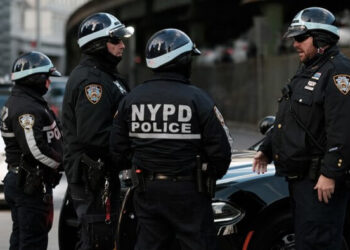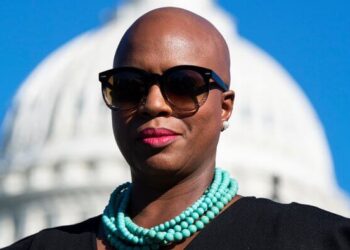“First they came for the Communists And I did not speak out Because I was not a Communist Then they came for the Socialists And I did not speak out Because I was not a Socialist Then they came for the trade unionists And I did not speak out Because I was not a trade unionist Then they came for the Jews And I did not speak out Because I was not a Jew Then they came for me And there was no one left To speak out for me” – Martín Niemöller
Niemöller’s phrase that reminds us of the anti-Jewish sentiment of the 1940s applies perfectly to another lesser-known term: Christianophobia. Objectively any historian, sociologist or anthropologist can verify that it was less dangerous to be a Christian in the French Revolution or in times of world wars, and how subtle is this Christianophobia that little by little acts through laws, mass media and opinion formers.
We are not just talking about obvious examples such as Christianophobia in the East, which is based on the most primitive forms of violence in those Muslim countries where women continue to be stoned to death or homosexuals are thrown off rooftops, or even the most sophisticated strategy of the Chinese communist state of favoring a dubious official catholic church; and generating a faithful remnant of authentic underground Catholics. Estimating the Christian territorial presence in China is not easy, but the 2020 report by the NGO Open Doors calculates that some 97 million Christians of different denominations live in that country-
In Europe it is an everyday thing to hear the demands of tiny but widespread groups to remove crucifixes from school classrooms, the sonnets of Dante Alighieri's Commedia where he places non- Christian characters in hell and other requests that they point to the culture of cancellation to the detriment of the Roman-Christian history and identity of the West.
As Pilar Rahola points out, the current problem is that since the catacombs there has not been such a massive, organized and unpunished attempt to finish off the Christians; the escalation that begins with intolerance gives way to discrimination and then to physical violence. In Italy, the observatory of Christianophobia called; showed that in the world a Christian dies every five minutes for defending his Faith and in Spain, the Observatory for religious freedom and conscience estimates that in that country the majority of attacks against Christians in 2016 it was against Catholics with 147 attacks (70% of the total) to all this it is worth asking : Where is the supreme pontiff of Rome? The subtle forms that religious intolerance takes against Christians range from the prohibition of conscientious objection in defense of innocent life and against the elementary commandment you shall not kill to forms more typical of modern relativism where any anti-Christian offense can camouflage as artistic expression.
There is nothing new under the sun and from the Roman coliseum to the Vendée genocide, the Christian is clear that earthly life is transitory and that it is the most honorable of acts to give one's life for love, love of God and martyrdom love that call for the conversion of the other, but be careful, martyrdom is the last instance and the gift of life must be preserved. Without obsession, without clinging to the earth, but giving it the value that our Creator has given it, we are the product of his desire. Fighting with the weapons of peace is possible, installing the word Christianophobia, studying the phenomenon, resorting to private and state legal channels and above all denouncing these offenses in the mass media that rarely give rise to the victims of this hatred.
Despite all this, however, there is an even more dangerous facet of anti-Christian hatred and that is to reduce and relativize Christianity to a mere set of values, ignoring or falsifying the Salvation Act that occurs only in our Christian religion, since For the Christian, God came down to meet man and showed His Face, He became human and it was no longer man who had to ascend to God through mysteries, meditations or illuminations. Most of the first apostles who met Jesus Christ died martyrs willing to never deny their Savior, they did not abjure their Faith under torture or at the point of death under terrible and brutal punishments. They who knew Jesus first-hand were so sure of their Faith that suffered martyrdom with hope and trust, we who know him a little more distantly and only in our hearts we are not called that kind of martyrdom of the death but if that of being ridiculed, defamed and discriminated, so let us suffer the cross with moral height but always defending truth and justice.
As the saying goes, from the cruelty of the executioner comes the temperance of the saint. We are not going to stop being Christians.
This is an excerpt from Resist the Mainstream











